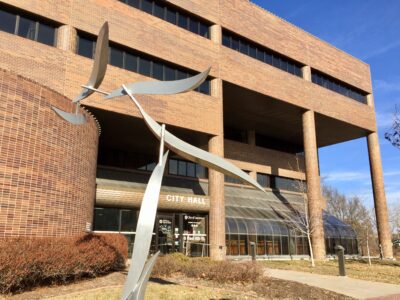Senate starting over on tax bill; chairwoman wants more than just income taxes
Topeka ? The chairwoman of the Senate tax committee said Monday that she wants to start over to piece together a new tax bill aimed at closing a looming $755 million budget deficit for the next two years, and she plans to appoint a small subcommittee to begin doing that this week.
Sen. Caryn Tyson, R-Parker, made that announcement Monday, the Legislature’s first day at work since Feb. 23, when the Senate came up three votes short in an attempt to override Gov. Sam Brownback’s veto of an earlier bill that would have reversed many of the income tax cuts he championed in 2012.
It was also the Legislature’s first day at work since Thursday’s ruling by the Kansas Supreme Court declaring that current funding for K-12 education was insufficient and unconstitutional, a decision that could require the state to spend hundreds of millions of dollars more each year on public schools.
In making that announcement, though, Tyson said she hopes the subcommittee will look beyond just raising income taxes in order to boost state revenues.
“We need to look at all taxes at this point,” Tyson said.
Before that happens, though, the full Senate plans to debate and vote on Brownback’s own tax bill Tuesday, a bill that most senators believe has little chance of passing.
That bill would leave his income tax policies in place, but would impose big increases in taxes in alcohol, cigarettes and other tobacco products to raise about $377 million over the next two years. The rest of the budget hole, under Brownback’s plan, would be filled by measures such as selling off the state’s interest in future tobacco settlement payments, delaying payments into the state pension system and sweeping funds out of the state highway program.
Others on the committee, however, did not seem as interested as Tyson in broadening the discussion beyond income taxes.
Sen. Tom Holland, of Baldwin City, the ranking Democrat on the panel, pointed out that just before lawmakers left for a weeklong break Feb. 23, Senate Majority Leader Jim Denning, of Overland Park, introduced a new bill that was identical to the one Brownback vetoed, with the exception that it would not impose retroactive increases in tax rates as the original bill did.
He suggested the committee use that bill as the starting point for future tax discussions. But Tyson said she did not want to limit the committee’s options.
“We can consider it,” Tyson said. “At this point, I’d rather not select a basis. This is the first that committee members are hearing of the conversation and I’d like to give everybody time to digest their thoughts on what they think should be a baseline bill.”
Sen. Dan Kerschen, R-Garden Plain, said he wasn’t ready to give up on the original tax bill or some variation of it.
“I want to look at the tax bill that did pass our body and find out what tweaks we can make to that to make that more acceptable,” he said. “If there are minimal changes, it seems like we could proceed faster than going through four or five other tax bills.”
But Sen. Julia Lynn, R-Olathe, who originally offered the idea of naming a subcommittee, said there are a number of other tax bills pending in the committee, and she said she wants those bills to have hearings as well before the committee decides on a final package.
After the meeting, Tyson told reporters that the Supreme Court’s decision last week on school finance could force lawmakers to consider raising the statewide 20-mill property tax levy that funds public schools.
“The state doesn’t collect property tax to run the state general fund. Property tax is used for local government and schools. I’d like to continue that model,” Tyson said.
But when asked whether it could be used as part of a school finance package to address the Supreme Court’s ruling, she said, “then it could be looked at.”




